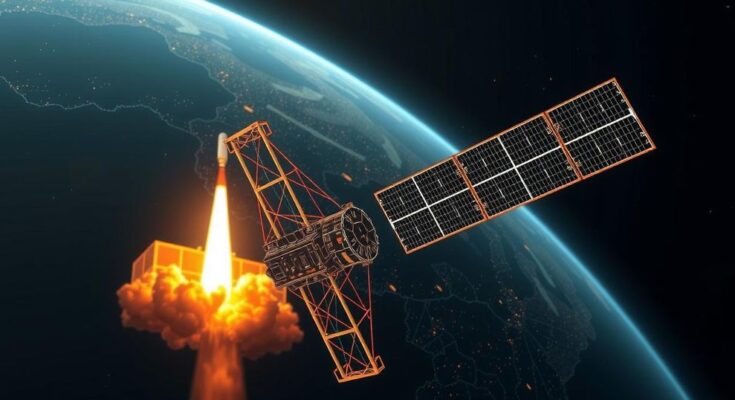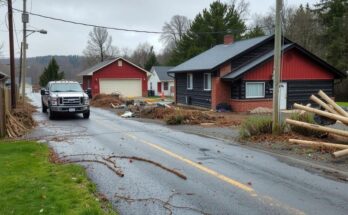A recent surge in African satellite launches marks a significant development in the continent’s pursuit of technological sovereignty. Senegal’s GaindeSAT-1A, along with initial operational satellites from Djibouti and Zimbabwe, indicates a growing engagement in space technology among African nations. However, reliance on foreign aid and a lack of launch facilities remain challenges as experts call for a focus on local needs in the context of climate change and resource management.
The recent surge of satellite launches from African countries signifies a transformative moment for the continent as they strive towards technological independence. On 16 August, Senegal marked a milestone by deploying its first satellite, GaindeSAT-1A, which is poised to deliver vital services in earth observation and telecommunications. This development is part of a broader trend as 17 African nations have launched over 60 satellites, with expectations of further advancements in the next years. Despite the lack of local launch facilities, this growing activity reflects a significant shift in Africa’s engagement in space technologies, enabling improved monitoring of climate impacts, agricultural conditions, and telecommunications infrastructure. The comments from industry experts indicate a hopeful outlook for Africa’s space aspirations. Kwaku Sumah, founder of Spacehubs Africa, emphasizes the accessibility brought about by declining launch costs; these changes empower smaller nations to participate in satellite tech—essential for regional data autonomy. However, challenges remain, as many countries continue depending on foreign technologies and expertise. Senegal’s satellite was developed through collaboration with a French university underlining the ongoing reliance on external resources, although the progress is evident and encouraging. Current African satellite initiatives have yielded critical data for addressing pressing environmental matters such as climate change and agricultural productivity. For instance, Sarah Kimani of the Kenyan Meteorological Department highlights the importance of timely satellite data in tracking and managing severe weather events. Such technological advancements are paramount in countering the continent’s vulnerabilities to climatic fluctuations. On the broader scale, the increasing interest from global powers in African space programs has introduced geopolitical considerations, raising concerns about sovereignty and the role of foreign influence in these initiatives. Nevertheless, industry leaders express optimism about Africa’s capacity to leverage these engagements for mutual benefits, potentially fostering a dynamic environment for growth. Notably, the expansion of satellite development resonates positively within the private sector across the continent, as approximately 80 satellites are currently being devised. This momentum represents not just a technological leap but an opportunity for African nations to establish their identity in the global arena of space exploration.
In recent years, the landscape of satellite technology in Africa has undergone significant evolution with various nations pursuing independent satellite programs. A noticeable drop in launch costs, along with increased international collaboration, has facilitated this growth. However, the absence of indigenous launch facilities continues to pose challenges. The continent has gradually recognized the importance of having its own satellite capabilities to effectively manage resources, monitor environmental risks, and foster communication networks, culminating in developments such as Senegal’s first satellite, GaindeSAT-1A.
The burgeoning activity in satellite deployment across Africa signals a promising horizon for the continent’s technological capabilities. As more nations embark on their satellite journeys, there remains a dual challenge of fostering local expertise while mitigating dependence on foreign technology. The advancements in satellite technology not only enhance Africa’s ability to address local needs but also establish a foundation for stronger regional cooperation and a more autonomous position in the global space arena.
Original Source: www.bbc.com




